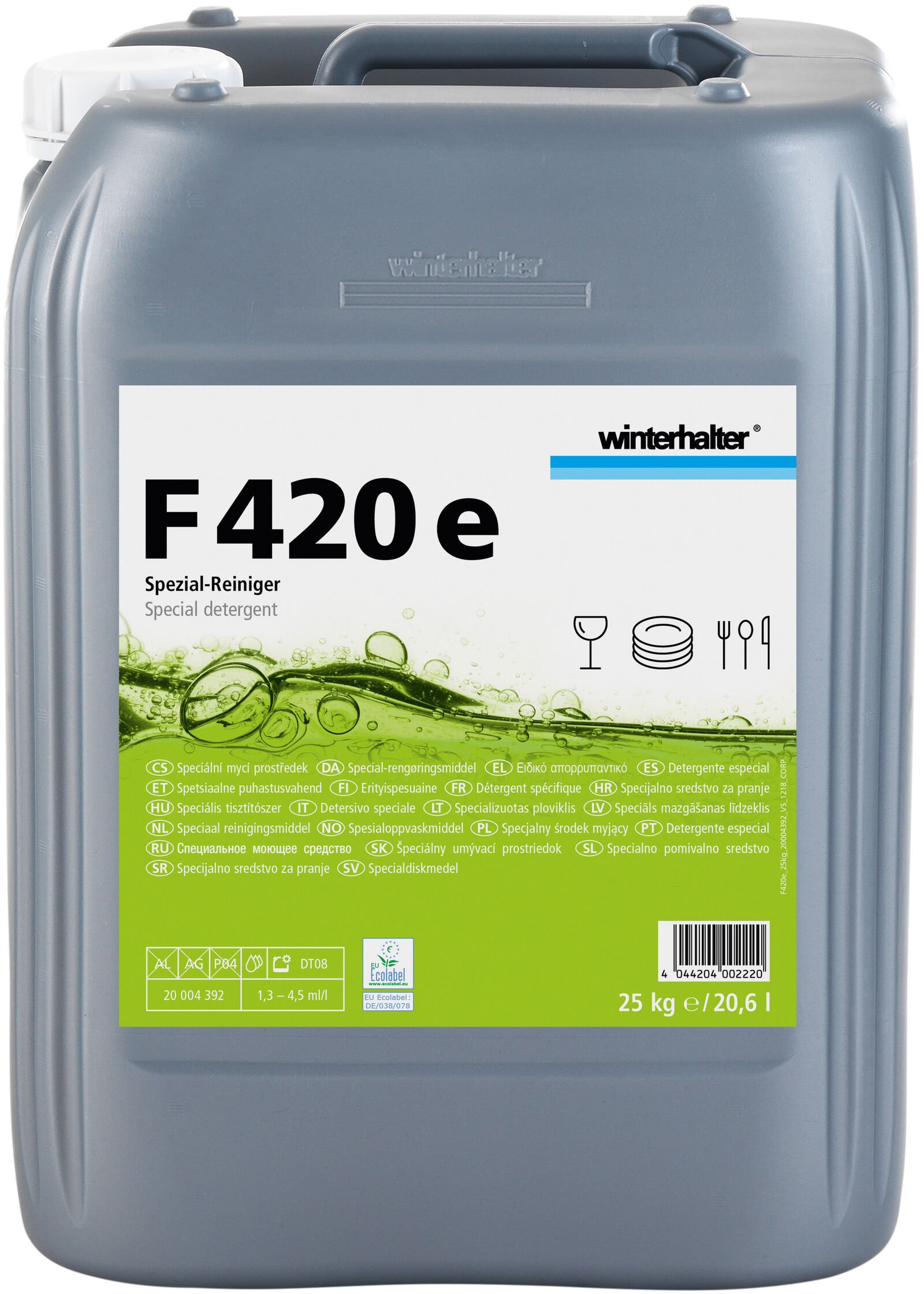WINTERHALTER’S E-CHEMICALS: THE GREEN ALTERNATIVE FOR WAREWASHING

Scared to switch? Winterhalter offers trials of its eco-friendly chemicals
The crusade to make the foodservice industry sustainable is being driven by both operators and the supply chain. Dishwasher specialist Winterhalter has always been at the cutting edge in developing technology that saves resources. It’s also developed its own range of chemicals. Recently it relaunched its warewasher chemicals and has ensured that the range includes several ‘green’ e-chemical options, including one that has been awarded the EU Ecolabel.
The e-chemicals have all been developed by Winterhalter for warewashing to meet the specific needs of the hospitality sector. They have been formulated to work in conjunction with Winterhalter machines to deliver guaranteed results. They are also suitable for use with other warewasher brands.
All the e-chemicals are very close to being PH Neutral, so they are safer to use, kinder to the waste water treatment system and better for the environment than conventional chemicals. They include F720 BLUe, a detergent that’s especially useful for delicate items; and A100e and A140e, both of which are enzymatic pre-cleaners designed to remove stubborn dirt. F420e is the all-purpose detergent that carries the EU Ecolabel. This environmental excellence award is given to products and services meeting high environmental standards throughout their life-cycle: from raw material extraction, to production, distribution and disposal.
Winterhalter understands that the prospect of switching from tried and trusted conventional warewasher chemicals to green alternatives may concern some operators and their staff. That’s why the company is happy to offer trials of its e-chemicals, so that customers can test the results for themselves.
“Sustainability has shot up the agenda,” says Paul Crowley, marketing development manager at Winterhalter. “It’s always been part of the specification mix for our customers, but it is much more of a focus now. Our e-chemicals can play an important role in reducing a foodservice operator’s impact on the environment.”